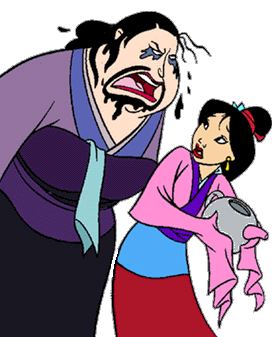In the dojo it is important to have
good sensei (teachers) guiding you on your physical, mental and spiritual journey
in the martial arts.
There is; however, an equally important role in the dojo:
the uke.
Uke is
Japanese for partner for working out in
class. They are used in basic drills, self-defense exercises, kata and sparring.
In most situations, an uke will be a fellow student; however, it is not
unusual for a sensei to step into the pivotal role.
A good uke
will possess the following qualities:
Control: Deliver a strike or kick, so that
it is felt, but does not injure.
Focus: an uke’s chu (mind, body & spirit)
is present and centered on helping her partner’s progress and well-being.
Knowledge: Understanding of the role of uke, the skills being developed, and her partner (strengths,
weaknesses, perceptions of both, personality & learning style).
Insight: Recognition of one's own limitations and willingness to embrace
the opportunities to learn and improve. Recognition of your uke’s vulnerabilities
and willingness to help your uke recognize them, as well (without causing injury – see control)
Hindsight & Foresight: These go hand-in-hand. A good uke is
cognizant of her partner’s past journey and has an understanding of her partner’s
future goals. This knowledge gives an uke the foresight to devise the best plan to
assist her partner in achieving his/her goal by holding/setting challenging, yet attainable targets. Once a goal is reached, a good uke adjusts the targets, so that her partner does not plateau or become complacent, but continues forth on her journey.
Quiet Humility: a good uke does not shame,
embarrass or injure her partner. She understands her role is to help her
partner improve, even if her partner’s success means the uke’s defeat. Success is not defined by leaving the sparring
ring with the most points, but by leaving the ring with the most knowledge and
growth.
Passion: a love for the skills, concepts, philosophies,
& process, as well as a desire to pass that knowledge & experience on
to others.
Patience: an understanding that everyone learns,
processes, works, & succeeds at his/her own pace. It is not an uke’s role
to push or drag her partner along, but to walk beside her and encourage each
step.
Selflessness: a generous heart to give of one’s
time, knowledge & passion. A selfless heart to celebrate the achievements
and success of others.
Flexibility: the ability and willingness to alter
your perspective, position and approach to best meet your uke’s needs.
Strength: the fortitude to challenge your partner
to reach beyond what she sees as her limitations, and the courage to acknowledge the
potential, to which your partner is blind.
Trust: the honor of your partner’s faith in your abilities,
knowledge, control, & intention, as well as your own belief in the process & your instincts.
And Respect:
Respect your uke.
Respect yourself.
Respect the truth that what works for you, may not work for others.
Respect the process of discovery and growth.
Respect the process of discovery and growth.
Respect the fact that we are all
Works-in-Progress. Help the progress of others. Don’t hinder it, or you hinder
your own.
Respect.
The admirable
qualities found in a good uke in the dojo are the same qualities writers should
seek in a critique partner, agent, or editor.
They are the same qualities one should
embrace in any partnership, whether it be in karate, writing or life.
If someone does
not possess these qualities, do not step into the ring with them. A bad uke can
do more harm than no uke. In the end, we should strive to seek out these good
uke qualities in others and, more importantly, in ourselves.
In closing, because I love this song so much and it shows both the harm of bad ukes and benefit of good ukes, I leave you with this:










 Fa Zhou's patience & encouragement
Fa Zhou's patience & encouragement





